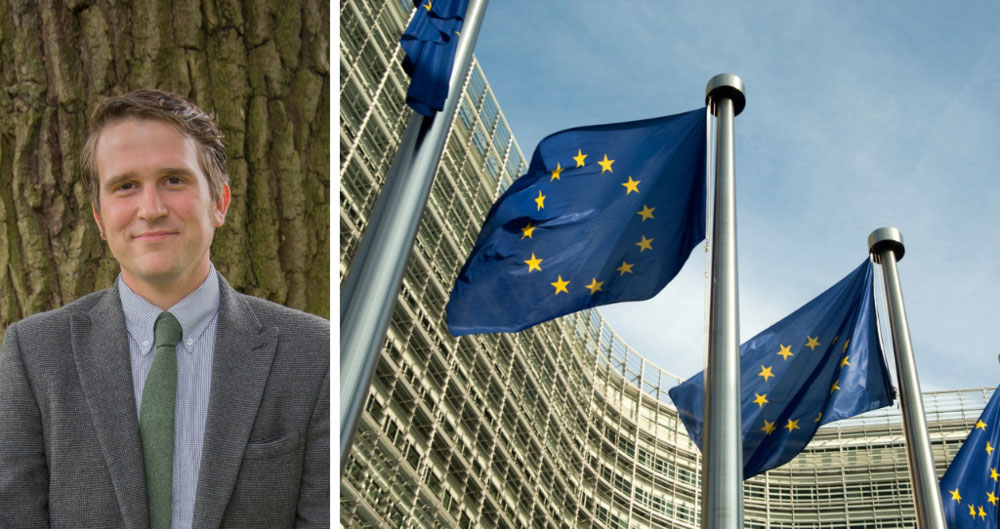Tom Keen is the NFU's senior European policy adviser and works in the NFU's Brussels office at the British Agriculture Bureau (BAB).
What is the European Commission?
The European Commission is akin to the EU’s civil service. It has Directorates General (DGs) that are similar to ministries. Each proposes, implements and monitors polices in a particular area; for example DG Environment, DG Trade or DG Agriculture. There are 28 in total and each is headed up by one European Commissioner. A commissioner is similar to a minister: providing leadership, direction and ultimately signing off proposals for legislation from their DG. The commission President leads the other 27, but decisions are made collectively. EU member states nominate one commissioner each, who in turn are agreed by the European Parliament. Crucially, the commission is the only EU institution that can actually propose legislation, such as agriculture policy or authorisations for pesticides. The European Parliament (consisting of 751 directly elected members) and the Council (where heads of EU member states and ministers meet) can amend proposals and provide pressure to force the commission to act.
“I’m the best-known friend of the bees”
The above quote is attributed to Mr Juncker after it emerged that the EU was planning to effectively ban three already restricted pesticide substances of the neonicotinoid family. While he could have been referring to the fact that confidential proposals were leaked, it’s no secret that the President sees the ban as a badge of pride for the EU. The restrictions are rooted in precautionary, rather than risk-based action, but Mr Junker has embraced their political popularity. The effects on farmers growing oilseed rape and sugar beet in particular are well known to the industry, but this episode outlines that a commission President can act politically, and with support at that level, the consequences for farmers can be serious.
“I will not accept that milk is cheaper than water”
On the other hand, the support of the commission President can be of significant help to farmers. Mr Juncker made the above declaration in his flagship annual “State of the Union” speech in 2016, noting the €1bn that the EU had delivered in special assistance to dairy farmers over two years of price crisis. While not a silver bullet, many UK dairy farmers received more than £50m in direct aid. It’s also not hard to link Mr Juncker’s statement that “the Commission will always stand by our farmers” to the smaller than expected cut in the future Common Agriculture Policy budget. Perhaps with a commission President unsupportive of farming, the EU would not be spending close to 30% of its future €1.2 trillion budget on the CAP in the face of a member state leaving, the challenges of climate change and the huge pressures of migration.
So if it matters, then who’s next?
While these are only two examples among several, it’s clear that the commission President’s influence can be felt on farming. Brexit will of course change this, but for those following the process, Jean-Claude Juncker’s role here has hardly been insignificant either.
The next commission President is ultimately elected by the European Parliament and this could happen as soon as mid-July. The individual is highly likely to be one of the European political groups’ “lead candidates” which have already been selected. The lead candidate of the political group that wins the most seats, or who commands a majority in the parliament, will then be selected by the member state leaders in the European Council. Once voted through by the leaders, the candidate will then have to secure a majority in a final vote in the parliament.
Regardless of the “whats and whens” of Brexit, the newly elected commission President will shape the EU that the UK will be negotiating, trading and competing with. More specifically, future agriculture policy, climate change measures and food safety laws may need to be followed, mirrored or at the very least borne in mind as UK farmers operate over the coming years.
More from NFUonline:
